The Red Krayola (album)
| The Red Krayola | |
|---|---|
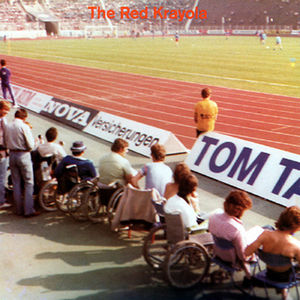 | |
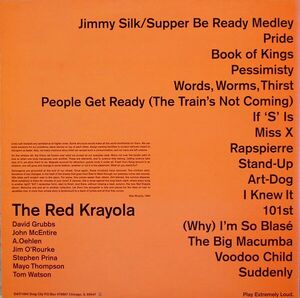 | |
| Studio album by The Red Krayola | |
| Released | September 19, 1994 |
| Recorded | January 1994 |
| Studio |
|
| Label | |
Track listing
| No. | Title | Length |
|---|---|---|
| 1. | "Jimmy Silk/Supper Be Ready Medley" | 1:57 |
| 2. | "Pride" | 1:06 |
| 3. | "Book of Kings" | 2:40 |
| 4. | "Pessimisty" | 2:50 |
| 5. | "Worms, Worms, Thirst" | 1:38 |
| 6. | "People Get Ready (The Train's Not Coming)" | 3:22 |
| 7. | "If 'S' Is" | 2:06 |
| 8. | "Miss X" | 2:37 |
| 9. | "Rapspierre" | 2:44 |
| 10. | "Stand-Up" | 2:42 |
| 11. | "Art-Dog" | 1:09 |
| 12. | "I Knew It" | 1:54 |
| 13. | "101st" | 1:54 |
| 14. | "(Why) I'm So Blasé" | 2:07 |
| 15. | "The Big Macumba" | 2:42 |
| 16. | "Voodoo Child" | 1:47 |
| 17. | "Suddenly" | 1:51 |
Background
Liner notes
Rian Murphy, 1994
Lives rush towards any semblance of higher order. Some structure would make all the world worthwhile for them. We can build solutions for our problems; stack stories on top of each other; design parking facilities to protect vehicles meant to transport us faster. Alas, not every vicarious story-child can except such a consummation, and so many are left undone.
On the window sill, the China cat hovers over what we accept as our everyday vista. Worry not over the tender path of love or when one body transposes over another. These are elements, and to science they belong. Letting science take care of it, we allow them to be. Magnets account for attraction; gravity lords it under all. Fresh from flying around in an airplane, one will grow and change in some fashion, whether or not it is the statement. What do you stand for?
Fairwagons are grounded at the end of our street. Once again, these minstrels have returned. The children start. Somehow it has changed. In the heat of the breeze that goes from East to West through our passway come new sounds, little bites we'll scratch over in the dawn. For some, this comes easier than others. Dirt-stained, the curious disperse. What substitute is there for minutes of your time? A caravan, like a verse against the long black night, where every song is another light? '94? I remember form, start to finish. And there, without missing a beat, autumn, the new Red Krayola album. Welcome one and all to another collection. Let them live alongside in bits and pieces for the likes of man to squabble over. A more than simple story is tantamount to a stack of turtles and all that they survey.
Ephemera
Postcard
-
Front
-
Back
Press kit
-
Photo
-
pg.1
-
pg.2-3
Personnel
Musicians
David Grubbs (guitar), John McEntire (drums), Albert Oehlen (electronics), Jim O'Rourke (Moog[1]), Stephen Prina, Mayo Thompson (writing, vocals, guitar), Tom Watson (guitar)
Cover art
The cover photo was taken by Albert Oehlen. It appears to depict the Volksparkstadion stadium in Hamburg, Germany.[2] The visible advertisements are for "Nova Versicherungen," an insurance company, and "Tom T" — maybe Tom Tailor, a clothing brand based in Hamburg and a major sponsor of the Hamburger SV team until 2003.[3]
-
Volksparkstadion, 1990[4]
Retrospectives
Mayo Thompson, 2015[5]
After [the 1993 concert in] Graz I got the bug again and started to play the guitar more, wrote five or six tunes and recorded them four-track with an eye to hitting up a record company for a deal and along came a chance. [...]
One day David Grubbs rang. He asked what I was up to and I gave him a dub of the four-track stuff, telling him of my plan to go to the bank. He asked if he might send it to Drag City in Chicago, urging me to hold off getting back in the mainstream grinder. It turned out Dan Koretzky and Dan Osborn liked the stuff. During Christmas ’93, when I was home in Texas visiting my mother, Dan rang. He was able to persuade me to give Drag City a chance. I swallowed my qualms about working again indie style. Eventually, Albert [Oehlen] and I went to Chicago and did our first work with the label, a song called “Columbia,” maybe another. Ultimately we made the eponymous LP at Steve Albini’s studio, building the set around the tunes from Germany, David playing, along with John McEntire from Bastro, Tom Watson from Slovenly, and Stephen Prina—an artist I’d gotten to know at the Pasadena art center. I won’t name everybody. The names are on the cover. Sure enough things kind of clicked and we got gigs. I should say too that I met Jim O'Rourke then, but didn’t know at first what to do with him. I’m glad to say we were able finally to get him involved.
David Grubbs, 2002[6]
[...] Robert [Nedelkoff] had the idea of Mayo producing Squirrel Bait and wrote to him, back in 1984. I think he was in Düsseldorf at the time. Then in 1989 Bastro was playing at the Rose Club in Cologne, and we did a version of "Dear Betty Baby" from Mayo's solo record, Corky's Debt to His Father, which is one of my absolute favorite records. The German music critic Diedrich Diederichsen told me afterwards that Mayo was living about 40 kilometres away, writing a novel about Albania, and gave me his phone number. I gave him a call the next day. When the first Gastr Del Sol record, [1993's] The Serpentine Similar, came out, I sent a copy to him in Germany, and got a call in Chicago about dinner time asking me when I was next in Europe so we could 'go ahead and do this', as if I'd proposed some kind of working arrangement. I met Mayo in Munich - I'd just given a paper on Ezra Pound in Rapallo, Italy, figuring out that I didn't want to be an academic specialising in modernist poetry - and I think at that point he'd already had an offer to teach in Pasadena, California, where he still is. I came back to Chicago where he had a weekly poker game with Dan Koretzky and Dan Osborn from Drag City, and halfway through the evening I said, 'I've got this tape with me of the new Red Krayola song'. I think that one of the provisos of any label putting out The Red Krayola - they spell it with a 'K' in the US, out of fear of lawsuits - is that there would need to be an equal or greater commitment to new material, as well as shepherding into reissuing all these fantastic records, and Drag City were immediately enthusiastic about it. So next week at the poker game I showed up with a Gastr Del Sol tape. [laughs]
Jim O'Rourke, 1994[7]
there will be a new album, The red krayola, out soon. It features Mayo along with Tom Watson, Steven Prina, Albert Oehlin, John McEntire, Dave Grubbs, and myself. it's great (i personally think mayo and dave are an impeccable team.) There is also this great Saddle sore 7", which was recorded i think just a month after Corky's debt. It's just so damn beautiful.....
John McEntire, 1994[8]
M: Wie kommt es, daß Red Crayola wieder aktiv sind?
John: Dave Shrubb von Bastro und Gastr del Sol nahm 1990 Kontakt mit Majo Thompson auf, als Bastro gerade in Europa auf Tour waren. Majo Thompson lebte zu der Zeit in Köln. Sie hatten dann regelmäßige Korrespondenz und schließlich entschied sich Majo 1992 dazu, wieder Musik machen zu wollen.
M: Wann hatte er Red Crayola zuletzt beiseite gelegt?
John: Red Crayola gibt es in welcher Form auch immer seit 1966. Seither gibt es immer wieder längere Perioden, in denen die Band nicht aktiv ist.
M: Warst Du 1966 überhaupt schon geboren?
John: Ich bin 1970 zur Welt gekommen.
M: Muß doch ein seltsames Gefühl sein, in einer Band zu spielen, die älter ist als man selber.
John: Manchmal schon, wir spielen sogar Songs, die geschrieben wurden, als es mich noch nicht gab. Jedenfalls entschied sich Majo dazu, mit Dave zusammenzuarbeiten und sie gaben drüben in Europa ein paar Konzerte. Daraus entstand die Idee zu einem neuen Album, was wir im Januar ’94 aufnahmen und was jetzt bei Drag City veröffentlicht wurde. Vor zwei Wochen waren wir in Japan und gaben zwei Konzerte, die ziemlich großartig waren.
M: Wie groß waren die Läden?
John: Eher klein, aber wir haben unser Geld wieder reinbekommen, der Promoter war ziemlich gut. Majo ist noch drüben und arbeitet schon an den nächsten Geschichten mit dortigen Musikern. Er hat ein richtiges Netzwerk an Musikern und Kontakten.
M: Wie läßt es sich mit ihm arbeiten und in welchem Alter ist er jetzt?
John: Er ist 50. Es ist spannend mit ihm zu arbeiten, er hat eben einen völlig anderen Background. Seit Anfang der 70er Jahre ist er stark mit der Kunstwelt verknüpft, spielte dann mit dieser englischen Band Art & Language - ein Kollektiv konzeptioneller Künstler - und seine Rhetorik ist ein wenig zu ...(überlegt angestrengt) ... sagen wir einfach: es kommt manchmal zu leichten Kommunikationsproblemen, weil er oftmals unterschiedliche Begriffe verwendet für eine bestimmte Sache, gerade im Hinblick auf Musik, z.B. wenn du einen Song ausarbeitest. Es kann schwierig werden auf einer theoretischen Stufe, was aber in Ordnung ist, und letztendlich zu interessanter Musik führt. Davon abgesehen ist es großartig mit ihm zu arbeiten, es macht wirklich spaß, vor allem wenn er guter Laune in Tokyo ist.
M: Wie sieht's mit einer Tour in Amerika oder Europa aus?
John: Wir haben darüber gesprochen, aber wenn überhaupt, dann vielleicht 2-3 Konzerte an der Ostküste oder dergleichen. Ich kann mir Majo nicht unbedingt 3 Wochen in einem Bandbus vorstellen. Eine größere Tour wird es jedenfalls nicht geben.
M: Wie würdest Du das neue Album beschreiben?
John: Es ist sicherlich Red Crayolas’ stärkste Annäherung an eine Rock-Platte bisher, was zum einen an den Musikern liegen dürfte, die Songs sind kurz und bündig und die Produktion ist entsprechend. Ich glaube aber nicht, daß ich der Platte unbedingt einen Dienst erweise, wenn ich sie als Rock-Scheibe bezeichne, denn dafür passiert doch einfach auch zu viel.
M: Wie kommt die Platte an?
John: Hervorragend, gerade in Japan. Ich war wirklich beeindruckt von der Masse an Leuten, die dort mit diesen riesigen Red CrayolaSammlungen ankamen, all diese komischen Bootlegs und limitierten Pressungen, keine Ahnung, wo sie das Zeug herkriegen. Ich war vor allem von der Reaktion bei den Live-Auftritten erstaunt. Jeder hatte mir erzählt, wie zurückhaltend das Publikum sich verhalten würde und dann kreischten sie wie verrückt, das war beeindruckend.
Reviews
Aiding & Abetting
August 31, 1994[9]
If you remember the Mayo Thompson re-issue from earlier in the summer, you should be prepared.
Having been around for over 25 years, The Red Krayola is the main vehicle of Thompson's muse. He gets a few friends together and they play some very odd music. In years past it might have been called "psychedelic pop", I suppose, but that term has mutated over the years, and I don't think that's quite right now.
I think I like "eclectic pop" better. The Red Krayola folks turn traditional rhythms ad melodies on their heads, exposing them as the true opiates of the masses. It can be difficult listening to an album with so many discordant statements, but as you know, I like that sort of thing.
Anything that makes me think this much is certainly fine. And if this music doesn't haunt your mind like a pissed off secret, then you didn't listen hard enough the first time. Like it says, "Play Extremely Loud."
Chicago Reader
January 19, 1995[10]
Bill Meyer
[...] The Red Krayola’s sound has varied widely over the years, but Thompson’s distinctive voice and guitar playing have always been immediately identifiable. His voice is high, quavery, and resolutely off key, but it is nevertheless a remarkable instrument. He is a master of phrasing, nimbly negotiating tricky rhythms and irregular song structures with ease. His vocal delivery suits his lyrics; on the new album’s “Rapspierre,” a dense Marxist social critique, he is by turns professorial, chiding, and sorrowful. The perpetual catch in his throat emphasizes the song’s outrage and regret. Thompson’s guitar playing is precise, clipped, and acerbic; he’s prone to off-kilter melodic runs that take the songs on unexpected tangents.
The Red Krayola is the most guitar-heavy record Thompson’s ever recorded. He and Grubbs, joined by guitarists Tom Watson and Stephen Prina, pack terse, interlocking riffs around McEntire’s nimble drumming on the album’s 17 brief tunes. There is no bassist–the thick tone would only get in the way of the other instruments. Jim O’Rourke and Albert Oehlen contribute squiggly synthesizer noises, buzzing around and commenting on the guitar parts rather than fulfilling the traditional keyboard role of filling up harmonic space. [...]
Suburban Voice
1995[11]
A new album from Mayo Thompson, who brings in new compatriots to keep the Krayola name alive — among them, Jim O'Rourke and David Grubbs (Gastr del Sol) and Tom Watson (Slovenly). Original, yet haphazard, featuring sparse instrumentation and understated vocals. Fractured psychedelic pop, somber minimalism and much of it comes off like Lou Reed on a downer (or Pavement without the self-consciousness), although Thompson's been making music just as long as Mr. Reed. Intriguing, in spots.
Brutarian
1990s[12]
So let me get this straight. A musician fails to realize that ever since he stopped taking LSD and smoking pot some twenty-five years ago he's become totally incapable of producing anything of even passing interest. And because people can't believe it and, furthermore, are too embarrassed to tell him he's a loser, they instead take to calling the bum a legend? What for? So he won't kill himself? I say, "Give this man a gun." A big gun. Still, it's hard to believe this rancid collection of moronic dada rock and meandering, inconsequential AOR nonsense was penned by the guy who wrote the amazing "Hurricane Fighter Plane" and put it on the even more amazing Parable of Arable Land lp. Maybe not. Especially if you've heard the execrable stuff he did with Art & Language.
The Trouser Press guide to '90s rock
1997[13]
Recorded by a collective of seven (including guitarists David Grubbs, Jim O'Rourke and Tom Watson, drummer John McEntire and German synthesist Albert Oehlen), The Red Krayola is a potent modern exposition of Thompson's Beefheart-ian musical inventions and wickedly offbeat lyrics. For all its idiosyncratic juxtapositions, the album is a relatively straightforward electric affair — alternatively engaging and patience testing — that sends antagonistic elements (noisy guitar, catatonic electronic blips, contrary rhythms) out to disrupt the calmly logical organization of restrained, tuneful inventions like the waltz-time "Jimmy Silk/Supper By Ready Medley," "Pride," "Book of Kings," (which paraphrases Carly Simon and quotes children's verse), the courtly, Roxy Music-like "Miss X," the chromatic "Art-Dog" and "Suddenly," crooned as a sweet harmony vocal exercise. Traditionally cavalier in his appreciation of song structures, Thompson fleshes out the album with "Rapspierre" (another of his accelerated Marxist theory courses, this one containing sing-song doggrel about monkeys, random keyboard noises and turntable scratches), the ripping drive-gear "People Get Ready (The Train's Not Coming)" near-instrumental and the catchy mantra "I Knew It." Provocative and, for the most part, highly entertaining.
References
- ↑ The Wire, January 1995, pg.19
- ↑ https://wolfbulls-stadionwelt.de.tl/Volksparkstadion-HAMBURG_BAHRENFELD.htm
- ↑ https://www.welt.de/print-welt/article695362/Tom-Tailor-prueft-Partnerschaft-mit-dem-HSV.html
- ↑ https://wolfbulls-stadionwelt.de.tl/Volksparkstadion-HAMBURG_BAHRENFELD.htm
- ↑ https://bombmagazine.org/articles/mayo-thompson/
- ↑ The Wire, April 2002 pg.22
- ↑ https://groups.google.com/g/rec.music.misc/c/Z3olBudNF8w/m/LYkKTZTRPRIJ
- ↑ https://archive.org/details/no_trend_press_20/page/74/mode/2up
- ↑ https://www.aidabet.com/archives/archR.html#REDK
- ↑ https://chicagoreader.com/music/long-lived-rock/
- ↑ https://archive.org/details/suburban_voice_36/page/n68/mode/1up
- ↑ https://archive.org/details/brutarian-14/page/64/mode/1up
- ↑ https://archive.org/details/trouserpressguid00robb_1/page/597/mode/1up
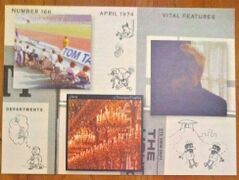
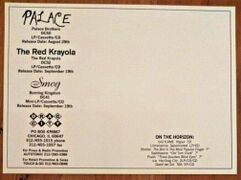
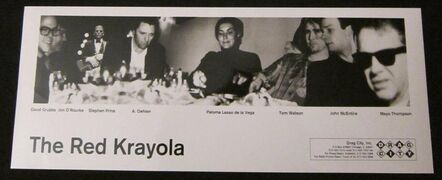
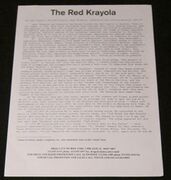
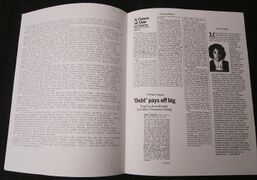
![Volksparkstadion, 1990[4]](/w/images/thumb/f/fd/Volksparkstadion-1990.jpg/232px-Volksparkstadion-1990.jpg)